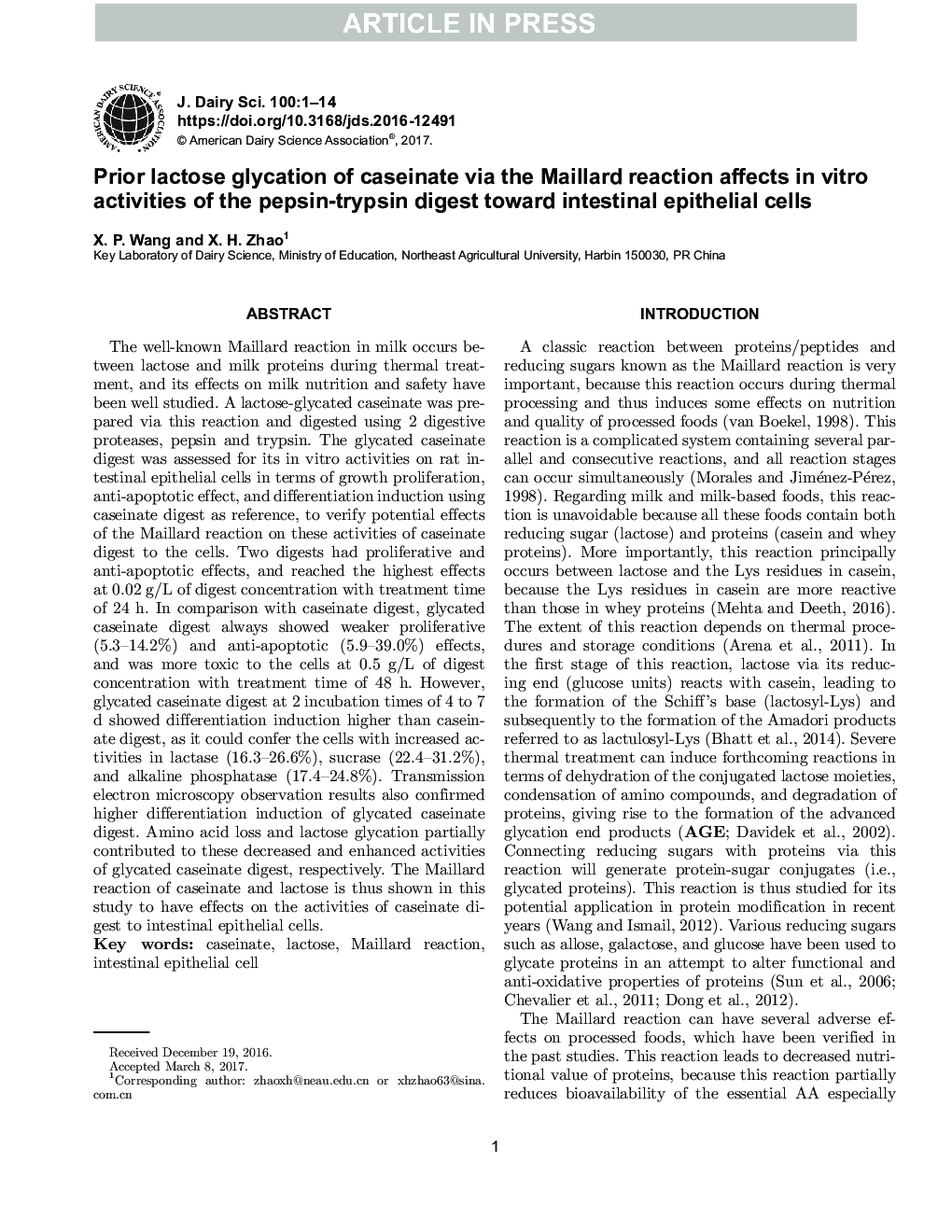| Article ID | Journal | Published Year | Pages | File Type |
|---|---|---|---|---|
| 5541723 | Journal of Dairy Science | 2017 | 14 Pages |
Abstract
The well-known Maillard reaction in milk occurs between lactose and milk proteins during thermal treatment, and its effects on milk nutrition and safety have been well studied. A lactose-glycated caseinate was prepared via this reaction and digested using 2 digestive proteases, pepsin and trypsin. The glycated caseinate digest was assessed for its in vitro activities on rat intestinal epithelial cells in terms of growth proliferation, anti-apoptotic effect, and differentiation induction using caseinate digest as reference, to verify potential effects of the Maillard reaction on these activities of caseinate digest to the cells. Two digests had proliferative and anti-apoptotic effects, and reached the highest effects at 0.02 g/L of digest concentration with treatment time of 24 h. In comparison with caseinate digest, glycated caseinate digest always showed weaker proliferative (5.3-14.2%) and anti-apoptotic (5.9-39.0%) effects, and was more toxic to the cells at 0.5 g/L of digest concentration with treatment time of 48 h. However, glycated caseinate digest at 2 incubation times of 4 to 7 d showed differentiation induction higher than caseinate digest, as it could confer the cells with increased activities in lactase (16.3-26.6%), sucrase (22.4-31.2%), and alkaline phosphatase (17.4-24.8%). Transmission electron microscopy observation results also confirmed higher differentiation induction of glycated caseinate digest. Amino acid loss and lactose glycation partially contributed to these decreased and enhanced activities of glycated caseinate digest, respectively. The Maillard reaction of caseinate and lactose is thus shown in this study to have effects on the activities of caseinate digest to intestinal epithelial cells.
Related Topics
Life Sciences
Agricultural and Biological Sciences
Animal Science and Zoology
Authors
X.P. Wang, X.H. Zhao,
